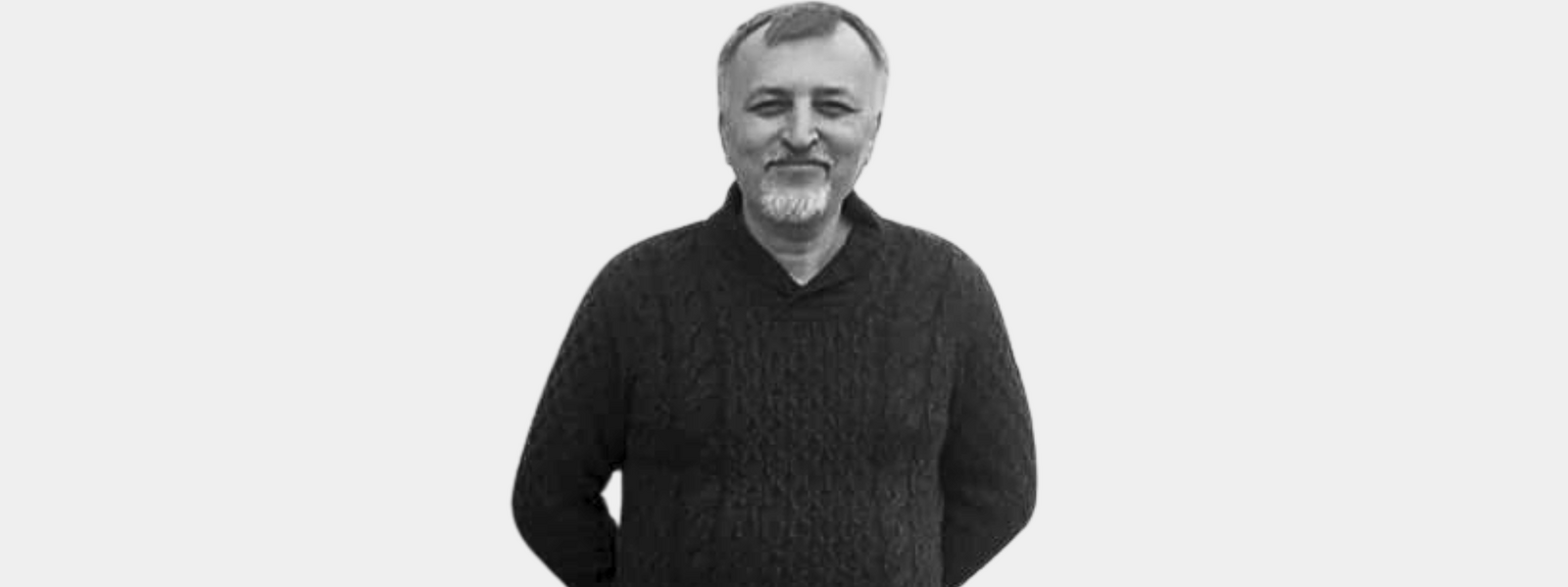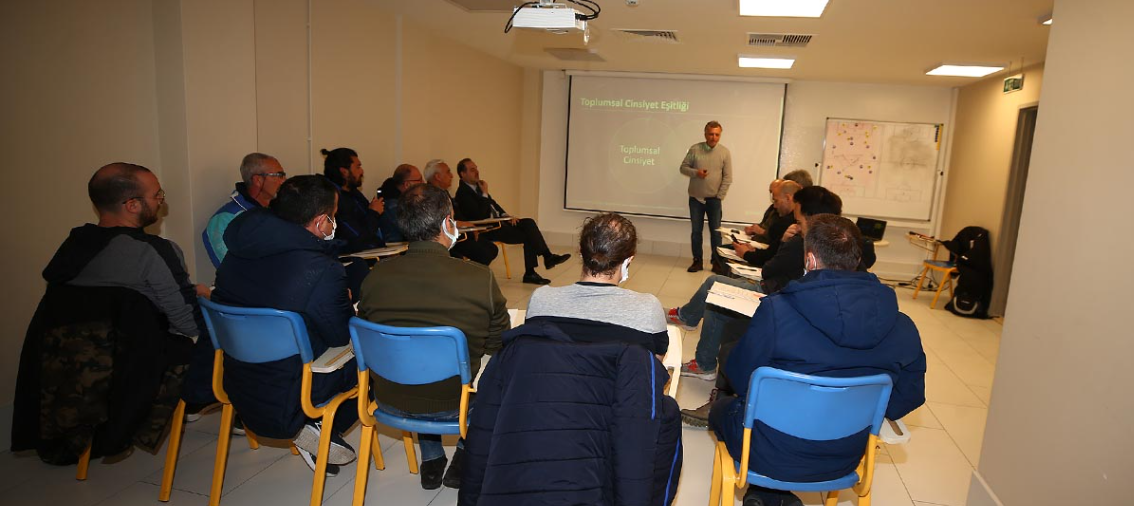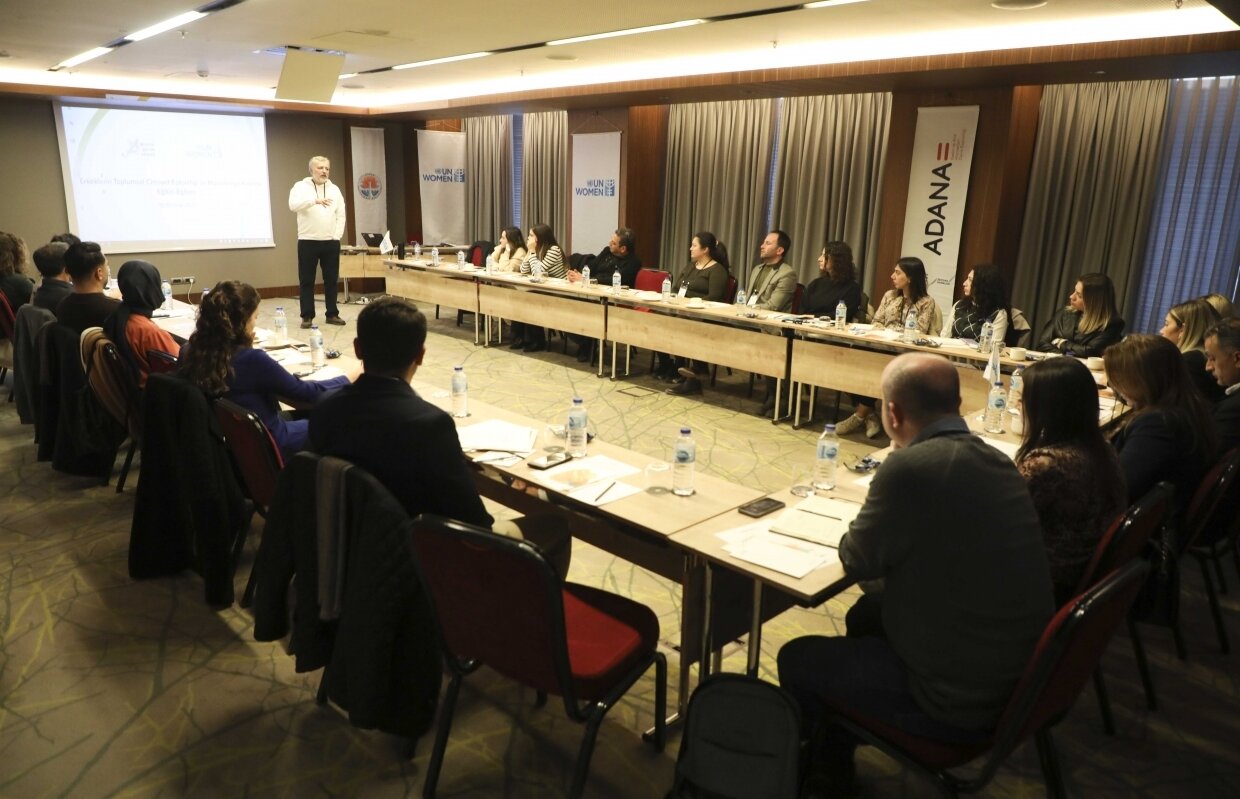'I have seen change - first in myself, then in others'

- Published On
- 23 Jul 2025
- Published By
- MenEngage Alliance
- Reading Time
- 5 minutes
- Resource Type
- Meet A Member
‘Meet a Member’ is a regular feature in the global MenEngage Alliance newsletter. In this edition, we hear from Murat Göç (he/him), a retired academic and active member of MenEngage Europe. Based in Turkey, Murat is a founding member of the Initiative for Critical Studies of Men and Masculinities and the founding editor of Masculinities Journal.
What sparked your interest in working on masculinities and gender justice?
I’ve always had problems with the perceptions and ideas of masculinity I grew up with. I was raised in a poor neighborhood in Izmir, on the west coast of Türkiye. Violence was everywhere, but I never got used to it. I refused to get used to an expression of masculinity that was violent. But for a long time, I didn’t know what to do about it. I had my discomfort, but I didn’t take any action until the age of 30.
Around that age, I began asking questions about my own masculinity and my role as a man in society. I was lucky to have already read many feminist texts during my studies, but now I started asking myself: how could I become a feminist to change my life?
I started reading critical feminist theory about men and masculinities, but the real change came when I met other feminist colleagues and LGBTQI+ friends from academia and civil society who helped me understand how I could put all the theory into practice, and what a profeminist man in action actually looks like. That’s when I really began to transform on a personal level.
What has your work looked like in practice?
Over the years, I’ve organized more than 100 workshops with men from all kinds of different backgrounds, ages, classes and with different concerns. To be honest, at first, I was quite angry with men. I couldn’t understand how they were so indifferent to the violence and inequality around them. I was pointing fingers and only thinking about them as perpetrators or complicit.
I realised that I was furious about men because I was also angry at myself. I had been in their shoes for over 30 years — I had made the same mistakes, been shaped by the same system. In a way, I was trying to compensate for my own faults and mistakes.
As I listened to men telling their own stories, I came to understand that: men may not know what they have done. They may not always know what they are doing and they are mainly concerned about their own problems.
So now, I hardly speak in my workshops. I’ve stopped showing PowerPoint presentations and I don’t run physical games or exercises. Now, I try to just let men speak out. However sexist, selfish or self-concerned they may be, I think it is important to make them feel listened to and build a relationship of mutual trust.
And then, I try to show them that: yes, they are going through a lot but one of the major reasons is that patriarchy is not just harming others, but is harming them too. Some of this pain is rooted in their own actions or in the silence they maintain in the face of an unjust and unequal system.
This is what I used to say first thing, in the first 5 minutes of a workshop. Now, I’m keeping it for the last 5 minutes. I really let men speak, and have debates. I think that when they feel safe, comfortable, when they feel they are among friends, I think men and boys are inclined to be more honest in talking about themselves and what they are doing.
That’s when I see real change begin.

What does change look like for you in this work?
I have learned that these conversations are much more effective when you [the moderator] speak their language, when you show that you’re genuinely listening to and paying attention to their concerns. By melting into the crowd, and creating a common ground between you and them, they accept you and they are more honest in having a conversation about gender issues.
But I’m very cautious about not letting them hide behind their excuses, about not creating solidarity in male victimization.
There has to be a balance between giving men a chance to feel heard while also ensuring responsibility and accountability.
There’s a risk of creating a ‘male victim’ narrative in these kinds of groups. I always try to bring the discussion to: what can we do to change ourselves? What can we do to change what’s happening around us? What can we do to protect ourselves?
Because I believe that gender equality for men is not about saving women or LGBTQI+ people. It’s about saving ourselves from patriarchy first. As a natural outcome of that, women and LGBTQI+ people will have more space and be safer. But we are not saviors. We are not heroes.

How do you see the situation in Turkey, especially in relation to LGBTQIA+ rights?
All people deserve to live with dignity and humanity, and it is only right that everyone has the freedom to be who they are and to love whom they love. And yet, that’s not the case in Türkiye.
I am deeply outraged by the Turkish government’s systemic campaign against the LGBTIQ+ community, which has escalated through harsher jail sentences, the silencing of civil society organizations, and the imposition of punishments for nonconformity with binary gender norms.
Additionally, one of the harshest anti-LGBTIQ+ laws in Europe is currently advancing through the Turkish Parliament. The bill severely restricts LGBTIQ+ expression and visibility, jeopardizes the right of trans people to marry, and permits arbitrary detention based on ambiguous allegations.
No one deserves to face harm, abuse, or discrimination simply for being who they are. I stand in unwavering solidarity with the LGBTIQ+ community in Türkiye and ask allies to spread the word about the situation and call for the safety and dignity of LGBTIQ+ people.
What have you learned from working with men over the years?
I have seen change — first in myself, then in others.
I hear inspiring stories all the time. I learn from the men I work with. I try to bring the real me as a person into the crowd and share my own stories too. I’m not speaking from a pedestal, not as an expert, nor as a professor or an ‘enlightened man’, but just as myself. I think that inspires other men because they don’t feel judged.
As the saying goes: “sinners make the best saints”. I was a sinner — I’ve made the same mistakes. That’s why I understand that change is possible.
How does being part of MenEngage Alliance impact your work?
It is totally empowering. Becoming a member was a really encouraging and empowering transformation in my life. Being in contact and in conversation with other experts, other civil society organizations and members every month has been really motivating and valuable.
I always believed in the power of solidarity.
I believe that when like-minded people are together, they inspire each other and also discover their own personal potential.
At times where I felt helpless or struggling to go on, I found courage and inspiration in other members working all over the world, knowing that we are contributing to something larger than ourselves together.
What would you say to others working on transforming masculinities?
We may not smash the patriarchy in our lifetime.
The point is not reaching your destination. The point is to be on the road. It’s about living meaningfully, with purpose, and helping others along the way. This is what life is all about. We cannot solve all the problems of the world in our lifetime. But we have nothing more important to do than to take steps towards the society and world we dream of. It’s a journey and the journey is more important than the real destination.
Murat was speaking to Gigi Davolio, communications intern at MenEngage Alliance

